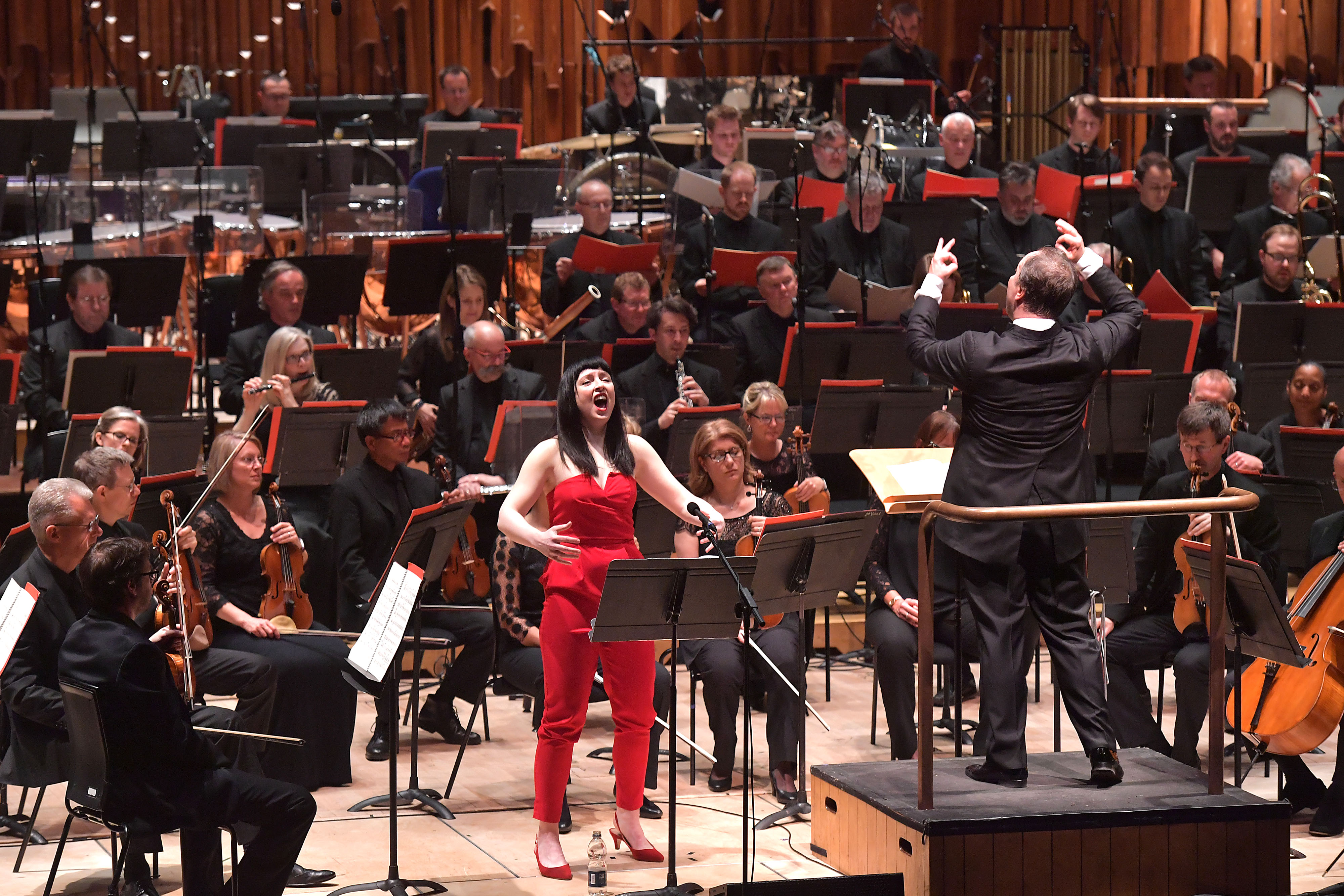Made from girders, say the brewers of an infamous Scottish fizzy drink. If you could siphon the music of Edgard Varèse into a can, that’s what it would taste like. Blunt, acrid, inimitable, fizzing with closely guarded, possibly unpleasant ingredients. The danger was that exposure to his entire output in one day would prove no more palatable than chugging through a two-litre bottle of Irn-Bru.
Thanks to some sensitive programming and superbly prepared performances, however, the BBC’s “Total Immersion Day” did not entail saturation. Instead, the indomitable strength of a personality, and a compositional voice unique in 20th century music, struck home with undimmed force. In a chamber-ensemble concert at Milton Court, the Guildhall New Music Ensemble began at the beginning, with Un grand sommeil noir. Published in 1906, this setting of Verlaine is the earliest piece to survive the accidental destruction and the composer’s ruthless purges which reduced his surviving output to little more than two-and-half-hours of music. With soaring control of line and fine articulation, the soprano Harriet Burns made the case here and in the symbolist Offrandes for the unlikely notion of Varèse as a lost song-writer in the French tradition.
We didn't know how he did what he was doing
However, the afternoon was dominated by those small ensemble masterpieces from the two decades after Varèse overthrew his Parisian training for good and emigrated to New York: Hyperprism, Octandre, Ionisation, Intégrales, each sounding not a moment too long, indeed trailing behind them a tantalising wake of unheard ideas. Geoffrey Paterson’s incisive direction elucidated the contrary spirit of Ionisation as a piece of conventional structure and recognisable melodies but scored for a battery of untuned percussion, and written with the elegance of an engineer-chef who presents you with a chicken roasted in a washing machine.
This sleight of hand is what makes Varèse “news that stays news”, in Ezra Pound’s coinage. Insights from colleagues and musicians flash across Frank Scheffer’s 2009 documentary portrait of the composer, but none more piercing than John Cage’s reply to Morton Feldman, who muses that for them and their fellow New York school composers, Varèse was "what Webern was to them in Europe." "He could have been," says Cage, but ‘I don’t think he was for the reason that we didn’t know how he did what he was doing."
If the processes behind his massive orchestral pieces retain an almost occult impenetrability, that only enhances their impact. In the case of Amériques for which he is understandably best-known, that process seems to involve writing out music he liked (Schoenberg, Stravinsky, Strauss) and then throwing marches and sirens at it to see what would stick. Even in the score’s most deafening and deadening stretches, the unflappable playing of the BBC Symphony Orchestra brought its teeming detail into focus.
There is a nerveless assurance to the conducting of Sakari Oramo in this repertoire, and he unerringly paced the more disciplined thrust of Arcana and the bare stretches of Déserts. The five-minute fantasy Tuning Up was brilliantly caught as a sketch of music-comedy on the verge of entropy. This complete survey offered a rare chance to hear two other rarities completed by the composer’s pupil and champion, Chou Wen-Chung. Etude pour Espace weaves more conventional harmony through the fabric of dissonance; the sense of a frustrated vision, of a much larger work struggling to come out, is affecting, and certainly more so than the late, exhausted fragment of Nocturnal. Allison Bell (pictured above) invested lines of Anais Nin with a lively beauty they scarcely deserved: if a sequel to Spinal Tap was made, as a parody of modernist art-music, Nocturnal would supply a ready-made soundtrack.
One serious complaint: Poème electronique, Dance for Burgess and Ecuatorial were presented on the “open stage” of the Barbican foyer, overlaid with coffee-machine clonks and shouts of “Cappuccino!” and “Latte!” like some latter-day Cris de Paris. Otherwise, the day was an object demonstration of what the BBC – and only the BBC – can do in backing music that everyone deserves to hear.














Add comment